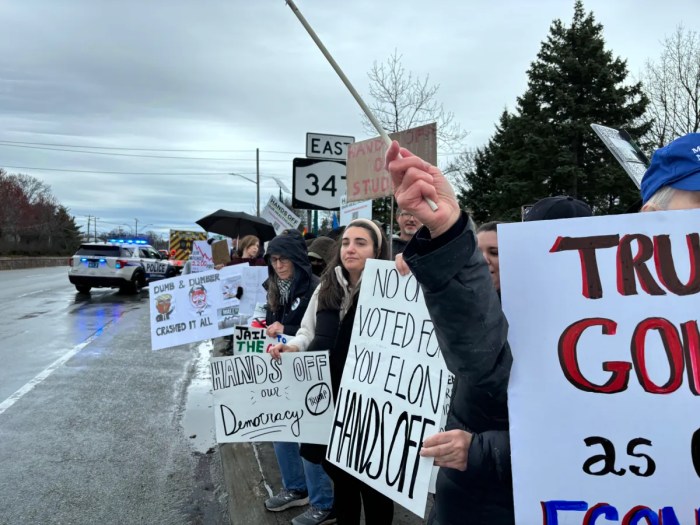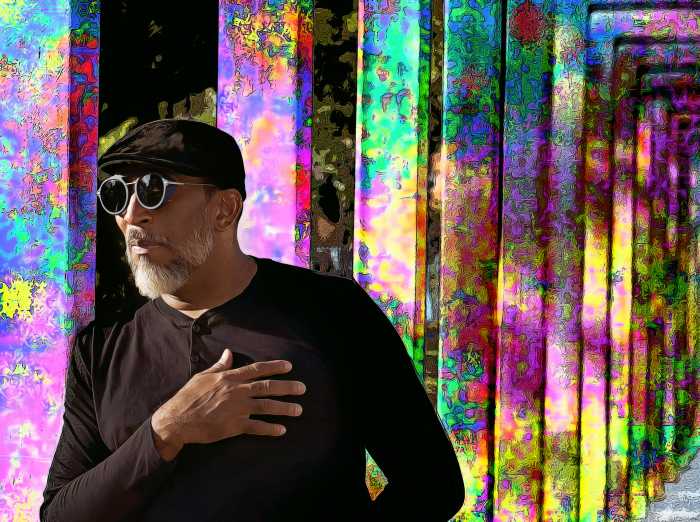A federal complaint filed in California accuses the Department of Justice of trying to collect the names of anonymous donors to a legal defense fund for journalist Barrett Brown, who had been imprisoned for four years prior to his release in November.
The class-action suit was filed in U.S. District Court in Northern California on Monday, claiming a United States Assistant Attorney and the FBI agent at the center of Brown’s 2012 arrest subpoenaed WePay, the host of a crowd-funded legal defense fund, for the identities of anonymous donors and the amounts they contributed.
California resident Kevin Gallagher, a computer systems administrator, launched the crowd-funding site—Free Barrett Brown—following Brown’s arrest out of concern that the antagonistic journalist was being prosecuted for political speech. Eventually, hundreds of people made anonymous donations to Brown’s legal defense fund, totaling more than $40,000.
“The subpoena claimed that the information it requested would be used at trial of the jailed journalist,” the suit states. “However, the identities of, and the mounts donated by, the journalist’s supporters are completely irrelevant to the charges levied against the journalist.”
Brown’s case never went as far as a jury trial, as he decided to plead guilty instead.
The legal filing adds that the subpoena was “part of a larger scheme…to unlawfully surveil the donors in violation of the First Amendment.”
Donations to Brown’s defense fund were occasionally marked with messages of support.
“I think it is imperative that everyone who cares about free speech, a free internet, or is horrified by prosecutorial overreach, donate to Barrett Brown’s legal defense,” read one such note, which was included in the suit.
“Learning that these records were sought and obtained was highly unsettling, and I felt that I had to do something about it,” Gallagher said in a statement. “If we don’t send a message to the government that it’s not okay to target private legal defense efforts, then they will continue to get away with these sort of things.”
Brown was originally investigated for sharing an already public hyperlink from one chat room to another. The link contained hacked information and stolen credit card information from a global intelligence firm, Stratfor. Brown was reporting on the Stratfor leak and the motivations of a host of the other private government security firms at the time of his arrest. His work, published in various mainstream sites like the Guardian, Huffington Post and Vanity Fair, as well as his own crowd-sourced site, Project PM, earned him a devoted following.
The hack was carried about by hacktivist Jerry Hammond and other members of hacking collective Anonymous. In 2013, Hammond was sentenced to 10 years in prison for his role in the hack.
Brown was initially facing more than 100 years in prison before prosecutors inexplicably dropped various charges, including one related to his sharing of the hyperlink. He eventually pleaded guilty two years ago to Internet threats, accessory after the fact, and interfering with the execution of a search warrant.
In November, Brown was released with five months remaining on his 63-month sentence, and is living in a halfway house in Texas.
In a previous interview with the Press, Gallagher said he became intrigued with Brown’s work around 2010, and eventually met him at the Hackers on Planet Earth conference in New York City two years later.
“I just felt that like his work was really important,” Gallagher said, adding that Brown’s dogged investigations into private intelligence firms shed much-needed light on an industry working in the shadows.
“I mean all the [Edward] Snowden leaks are about governmental state surveillance, people don’t discuss how it gets outsourced to private companies,” he added.
The FBI agent named in the complaint, Robert Smith, was instrumental in Brown’s arrest. He led the search of Brown’s mother’s home in 2012. The search deeply disturbed Brown, who later vented in a profanity-laced video rant uploaded to YouTube.
The portion of his outburst related to the threat charge as part of his guilty plea included claims from Brown that he was armed and would regard government agents as Mexican cartel assassins.
“Any armed officials of the U.S. government, particularly the FBI, will be regarded as potential [Los] Zeta assassin squads and as the FBI and DPD know…I’m armed and I come from a military family, that I was taught to shoot by a Vietnam vet and by my father, a master hunter of all things…I will shoot all of them and kill them if they come and do anything because they are engaged in a criminal conspiracy and I have reason to fear for my life, not just from the Zetas but from the U.S. government,” Brown said.
That the government initially charged Brown with sharing a public link disturbed privacy and journalism advocacy groups. The global press freedom group Reporters Without Borders in 2013 cited Brown’s case in its explanation for dropping the United States 14 spots in its annual report measuring press freedoms around the world.
Aside from living in a halfway house, Brown is mandated to participate in a drug and alcohol program and have his computer activity periodically monitored.
































